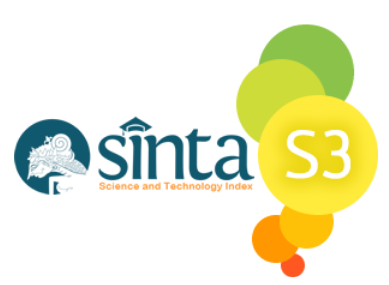Editorial Policies
- Focus and Scope
- Section Policies
- Peer Review Process
- Publication Frequency
- Open Access Policy
- Archiving
- Publication Ethics
Focus and Scope
The aim of Erudio Journal Educational Innovation (hence, EJEI) is to disseminate information on research results and studies of education practitioners (i.e. teachers, lecturers, or trainers) across the continents from various disciplines who are concerned with innovation in the education sector. In other words, EJEI serves as a place to share knowledge and experiences that will inspire readers and, thus, improve the quality of their educational daily practices.
Manuscripts considered for publication should contain new approaches, strategies, or techniques that may have significant effects on classroom activities at all levels of education (elementary and high school, as well as university level). EJEI also welcomes results of innovation as well as reviews on education management or administration at school and university levels.
The readers of EJEI include teachers, lecturers, and education scholars and practitioners in general.
Section Policies
Original Articles
Best Practice Article
Peer Review Process
All manuscripts submitted for possible publication in ERUDIO Journal of Educational Innovation are peer reviewed following the procedure outlined below.
Initially, the Editor-in-Chief first evaluate all manuscripts submitted. At this stage, insufficiently original, serious scientific flaws, poor grammar or English language, outside the aims and scope of the journal will get rejected. Those manuscripts which meet the minimum criteria are forwarded on to at least 2 experts for review.
ERUDIO Journal of Educational Innovation follows a double blind reviewing, where the reviewers remains anonymous throughout the process. The reviewers are selected on the basis of their area of expertise. The reviewer is asked to evaluate the manuscript, its originality, significance, ethical guidelines or protocols, methodology, presentation of results, appropriate references and report. The time required for the review process is depends upon the availability and the response of the reviewer. Revised manuscripts might be returned to the initial referees who may then request another revision of a manuscript, if needed.
Submission evaluation criteria:
- Value or usefulness to educational practices;
- Adequacy of design/accuracy of analysis;
- Presentation of ideas;
- Inclusion of appropriate implications for practice and/or policy;
- Important and timely;
- Consistency with existing literature;
- Overall clarity of ideas and expression;
- References to relevant existing work;
- Grammatical construction; writing style; use of non-sexist language.
Final decision to accept or reject the manuscript will be sent to the author along with any recommendations made by the referees. The decision of Editor-in-Chief of ERUDIO Journal of Educational Innovation is final to accept or reject the article.
Publication Frequency
EJEI serves as a bi-annual journal. It publishes articles on June and December every year.
Open Access Policy

Open Access is a publishing model that provides immediate, worldwide, barrier-free access to the full text of research articles without requiring a subscription to the journal in which these articles are published. Accordingly, readers are allowed to copy, use, distribute, transmit and display the work publicly and to make and distribute derivative works, in any digital medium for any responsible purpose, subject to proper attribution of authorship.
All articles published by ERUDIO Journal of Educational Innovation are made immediately available worldwide under an Open Access license. This means:
- everyone has free and unlimited access to the full-text of all articles published in ERUDIO Journal of Educational Innovation, and
- everyone is free to re-use the published material if proper accreditation/citation of the original publication is given.
Archiving
This journal utilizes the LOCKSS system to create a distributed archiving system among participating libraries and permits those libraries to create permanent archives of the journal for purposes of preservation and restoration. More...
Publication Ethics
Publication Ethics and Publication Malpractice Statement of ERUDIO Journal of Educational Innovation is based on the guidelines and standards developed by the Committee on Publication Ethics (COPE). The relevant responsibilities/duties and expectations of authors, reviewers, and editors of the journal are as detailed below.
Responsibilities of Authors
By submitting a manuscript to ERUDIO Journal of Educational Innovation, the author(s) authorize that the manuscript is their own, original work and has not been published elsewhere (except in the form of an abstract or as part of a published lecture, review, or thesis) and is not currently under consideration for publication elsewhere. The submitting author is responsible for ensuring that the article's publication has been approved by all the other coauthors. Authors also warrant that the sources of any ideas and/or words in the manuscript that are not their own have been properly attributed through appropriate citations and/or quotes.
Authors should not be supposed to normally submit or publish manuscripts describing essentially the same research in multiple journals. Such redundant publications are considered as constitute unethical publishing behavior, and if discovered may result in a manuscript under consideration will be rejected, or a published article will get retracted.
Authors of manuscripts claiming the original research should be in a significant scientific manner. The accuracy of the work performed, accompanied by an objective discussion of its significance. The scientific data should be represented accurately in the manuscript. The manuscript should contain sufficient detail and references so as to permit the others to replicate the work for their respective further research. The fabrication of results and the making of fraudulent or knowingly inaccurate statements constitute unethical behavior and may cause the rejection or the retraction of a manuscript or published article.
The manuscript should contain the details of all the commercial software, hardware, or other product used. The authors should also disclose the sources of financial support for the research in the manuscript.
Authors will be solely responsible for obtaining the written permission so as to include any images or artwork for which they do not hold copyright in their articles, or to adapt any such images or artwork for inclusion in their articles so as to avoid any ambiguity.
Authors will be solely responsible for obtaining the written ethical permissions so as to carry out any research related to animals and/or human subject studies.
The authors’ names should be listed in the article in order of their contribution to research, and all authors will be responsible for their own contributions. Only those individuals who have made a substantive contribution should be listed as authors; those whose contributions are indirect or marginal (e.g., colleagues or supervisors and heads of research institutes/centers/labs) should be addressed in an “Acknowledgments” section in the article. The corresponding author must ensure that all appropriate co-authors and no inappropriate co-authors are included on the article, and that all listed co-authors have seen and approved the final version of the article and agreed to its publication.
Responsibilities of Reviewers
The reviewers perform work for ERUDIO Journal of Educational Innovation on a volunteer basis. The reviewers are free to decline the invitations to review a particular manuscript at their discretion because of any reason (e.g., workload and/or other commitments, timeframe). The reviewers should not be supposed to accept the manuscript for review assignments for which if they feel unqualified.
The reviewers who have accepted manuscript assignments shall be committed to submit their reviews within the time span.
All the manuscripts received for review must be treated as a confidential documents, and must not be disclose or discussed with any others except the editorial office of ERUDIO Journal of Educational Innovation.
The reviewer must keep manuscript confidential and not supposed to be used for any sort of personal advantage.
The reviewers are encouraged to express their views clearly, explaining and justifying all recommendations made by them in such a manner so that authors should not feel personal criticism while sending the review report. It should be always seems to be as an attempt to provide detailed and constructive feedback in order to improve their work done, even if the manuscript is, in their opinion, not suitable for publication.
Reviewers should identify in their reviews that the relevant published work that has not been cited by the author(s), together with any such instances wherein proper source has not been provided.
The reviewers are encourage to immediately inform if incase, there is any major resemblances between a manuscript under consideration and with other published articles or papers of which they are aware.
Responsibilities of Editors
Editor is the main communicator between the reviewers, authors and publisher. Editor is the key factor who deals with any received information, complained or misconduct by the author or reviewer. The editor’s decision is final in acceptance or decline of a manuscript for publication.
Manuscript decision
Editor is responsible for the contents and overall quality of the publication, which can be ensure with the help of concerning reviewer and authors. Editor adopts processes that encourage accuracy, significance, originality, completeness and clarity of research work.
Fairness and Reliability
Editor’s decision should solely depend on scientific merit, relevancy to the subject, scope of the journal rather on financial, racial, ethnic origin and etc of the authors.
Plagiarism
ERUDIO Journal of Educational Innovation will check plagiarism for all the articles before prior publication using Content Authentication Tools (Copyleaks, Antiplagiat). If the plagiarism content is observed by editors, peer reviewers or by editorial staff members at any stage of publication process at the time of editing or proof reading will be communicate to author to rewrite the manuscript.
If the plagiarized content is noticed after the publication of the article then, it will be notified to the author and depending upon the plagiarism the article will be withdrawn from the journal.
Secrecy
Any manuscript received for review must be treated as confidential document. The editor and any editorial staff must not disclose any information about a submitted manuscript to anyone other than the corresponding author, potential reviewers, other editorial advisers, and the publisher, as appropriate.
Confession and conflicts of interest
Submitted work in form of manuscript must not be used in any form by editor's own work. Editors should not allow any conflicts of interest between staff, authors, reviewers and board members. Editor must be guided by the COPE flowcharts in cases of suspected misconduct or disputed authorship.
The Editor-in-Chief of ERUDIO Journal of Educational Innovation has ultimate responsibility for deciding if a manuscript submitted to journal should be published, and in doing so is guided by the journal’s policies as determined by the ERUDIO Journal of Educational Innovation editorial board and constrained by such legal requirements as shall then be in force regarding libel, copyright infringement, and plagiarism. The Editor-in-Chief may consult with the members of the editorial team, as well as with reviewers, in making publication decisions.












